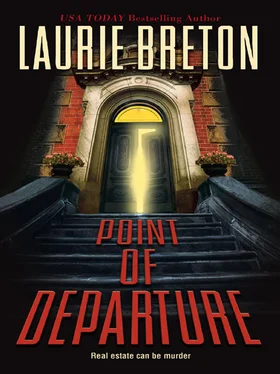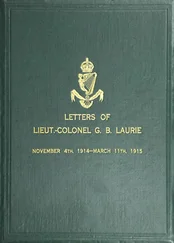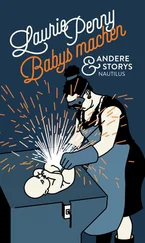Something had gone horribly wrong. Dad was downstairs right now, pacing the floor and drinking Glenlivet straight from the bottle. That wasn’t a good sign; Dad wasn’t much of a drinker, and that stuff tasted like crap. She knew how awful it was because she’d been taking the occasional nip since she was thirteen, since the day Dad first brought Kaye to the house and he’d looked at the woman that way. Like she was some piece of meat on a stick. That was the night Gracie’s life had started its downhill slide. It was also the first time she’d ever gotten shit-faced drunk. She’d woken up the next day with the mother of all hangovers, but at least she’d remembered to refill the bottle with water so nobody would notice how low the level of the liquid inside had dropped.
She flipped the carpet back over the floor register, went to her desk and logged on to her laptop. Please let him be online, she thought as she signed into AIM. Please, please, PLEASE let him be online. She typed in his screen name, then checked his availability.
AIM told her: Magnum357 is not currently signed on.
Gracie let out a hard breath as dread bottled up inside her chest. She swallowed a couple of times, just to make sure her throat still worked. She didn’t know any other way to reach him. They’d only started hanging out together a couple of months ago. She didn’t know where he lived, didn’t have his cell phone number. All she knew was his screen name—Magnum357—and his real name—Carlos—which, for all she knew, might not even be the real deal.
This was bad. This was really bad. If Dad found out she’d been seeing Carlos, who was definitely on the wrong side of twenty, not to mention dangerous, she’d be grounded for the next thirty years. And if the cops thought she knew something about Kaye’s disappearance—not that she did, but if they found out what she’d done it would make her look pretty damn guilty—she could go to jail. For a really long time.
This was a lose-lose situation, and guess who the loser would turn out to be? Sooner or later the truth would come out about what she’d asked Carlos to do. When it did, the shit would hit the fan.
And at that point, no matter how you looked at it, she was toast.
“You got in late last night.”
Doug Policzki stood in a square of morning sunlight, his gaze focused intently on the shiny stainless toaster as he awaited the arrival of two perfectly browned squares of whole wheat bread. “New case,” he said. The toaster popped. He pulled out his toast, tossed his necktie over his shoulder to keep it clean, and picked up the butter knife.
“When you gonna get a chance to mow the lawn? It’s starting to look like Wild Kingdom.”
Policzki opened the dishwasher and dropped the butter knife into the basket. “I don’t know,” he said. “This is a complicated case. It’ll probably suck up a lot of my time.”
“They’re all complicated.”
He felt a twinge of guilt. His mother was right. From earliest childhood, he’d been made to understand that his primary obligation was to the people who’d raised and nurtured him and tried to mold him into a civilized and decent human being. And he’d been a dutiful son; after his dad died, he’d moved back home to take care of his mother. But over the last year or two, he’d been increasingly remiss in those duties. The truth was that homicide took up most of his waking hours. And it was hardly fair to his mother that he always seemed to place her lower on his list of priorities than the dead bodies of strangers.
“Maybe Bernie could do it,” he suggested. “Or one of the boys.” His oldest sister, Debbie, and her husband, Bernie, lived three houses down and had a new lawnmower and two strapping teenage sons, neither of whom ever lifted a finger to help out their grandmother. Under the circumstances, one of them should jump into the breach before the lawn reached shoulder height.
Sounding exasperated, Linda Policzki said, “Doesn’t it ever bother you?”
Policzki shot her a quizzical glance before he sliced the toast in half with a quick incision from corner to corner. “You mean Wild Kingdom?”
“Oh, for the love of all that’s holy. I’m not talking about the lawn!” His mother’s strong and capable hands momentarily stopped kneading the meat loaf she was preparing for dinner, and she gave him the evil eye. Which wasn’t good news. Strong men had been known to weep when Linda Policzki turned the evil eye on them. “I’m talking,” she said, “about the fact that all the people you meet are dead.”
“Oh.” He relaxed a little and leaned against the counter. “I meet live people all the time.” He punctuated his sentence with a bite of toast.
His mother snorted. “Right,” she said. “Cops and murderers.”
“And lawyers, and judges, and—” he took another bite of toast, briefly considered the lovely and sophisticated Mia DeLucca, who’d looked at him last night as if he were the lowest form of pond scum “—other people.”
“All that talk of autopsies must make for scintillating dinner conversation.”
“They’re my colleagues, Ma. These are professional relationships. We don’t do dinner.”
Linda went back to kneading, pouring all her energies into a meal he likely wouldn’t be here to eat. Guilt gnawed at him. That was probably why she did it. She wanted him to feel guilty. It was what kept her going. His mother needed something to complain about, and she’d been blessed with a son who always managed to excel at filling that need.
It was nice to know that he excelled at something, but he wished fervently that she’d find somebody else to focus on. Anybody else. He had three sisters. Why couldn’t she meddle in their lives for a change? All of them were married and, between them, they’d given her seven grandchildren. Managing the lives of seven kids should be more than enough to keep her busy. Especially Jake and Jesse, who could definitely use a little more management. Deb and Bernie were both lawyers, which meant that the boys had been raised by a series of housekeepers. Which was pretty much the equivalent of being raised by a pack of wolves. There’d been little structure and less discipline. Jake and Jesse could undoubtedly benefit from a little of Gram’s influence.
But no dice. Linda Policzki had apparently decided her mission in life was to focus all her attention, all her energy, on her youngest child and only son.
A few months ago, he’d tried to convince his mother to take a cruise. Fantasies of a shipboard romance had played in his head like an old-fashioned movie reel: Linda meeting up with some lonely widower and being swept off her feet. Then traipsing around the world on a once-in-a-lifetime honeymoon. He could picture his mother backpacking through the rugged terrain of the Himalayas or riding a camel across the desert. The woman was as solid and invincible as concrete.
He’d brought home a stack of brochures. He’d even gone so far as to offer to pay for her ticket. But she’d laughed at him. He needed her here, she’d said, and that had been that.
Policzki had a suspicion that somebody had gotten a raw deal. He’d moved back home to take care of his widowed mother, but it seemed that more and more, it was his mother who was taking care of him. Whether he wanted her to or not. He wasn’t sure which of them had gotten the short end of that stick. But one of them surely had. And he’d begun to wonder if, when his sisters had ganged up on him and practically begged him to move back home, that had been their intent all along.
Without looking up from the meat loaf she was spooning into a baking pan, his mother said, “I need a favor.”
Policzki froze, his morning cup of coffee halfway to his mouth. This could mean only one thing. He could feel it coming, could feel the change in the air, like the stillness before a storm. An electrical charge that hadn’t been there a moment ago. No, he screamed silently. Please. Don’t say the words. Don’t do this to me.
Читать дальше












